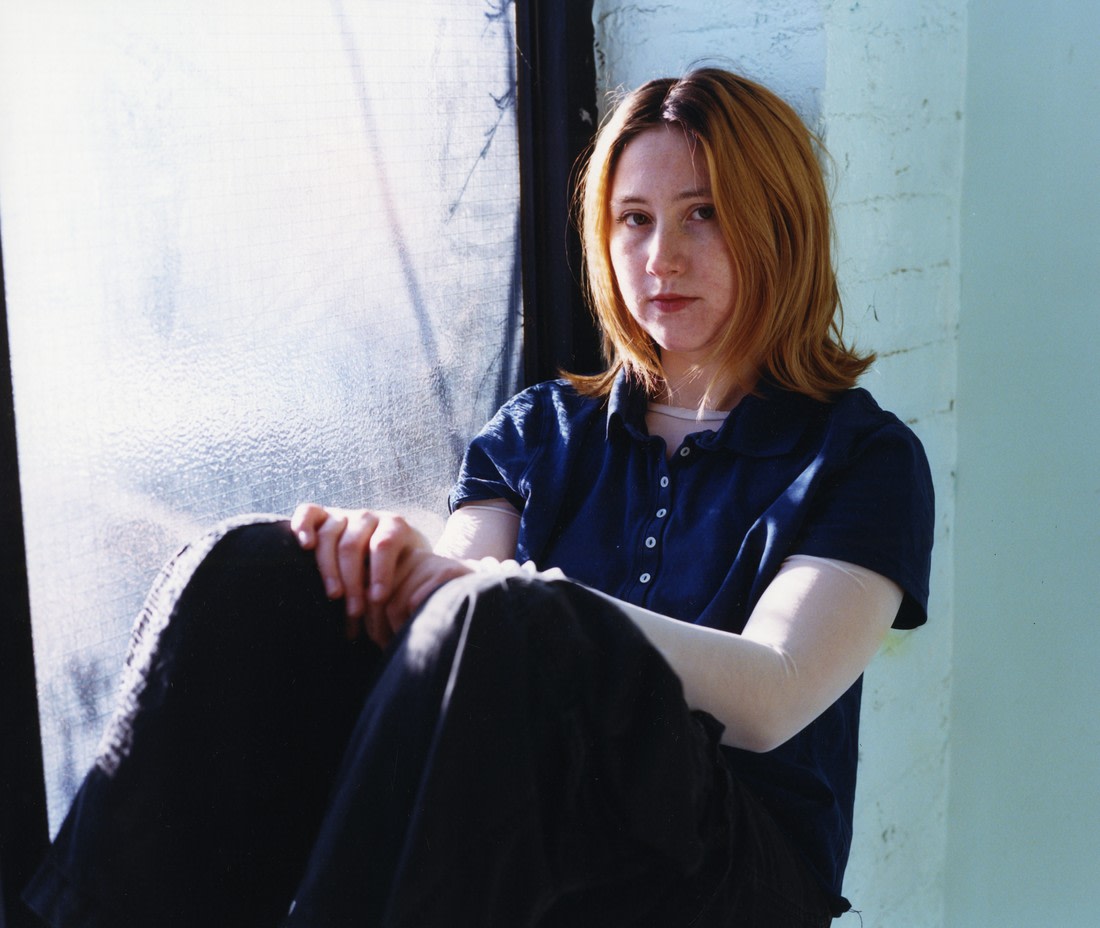 Margeaux. Photo by Angalis Field
Margeaux. Photo by Angalis Field
Discover Blogly is The FADER’s curated roundup of our favorite new music discoveries.
Whoever said your twenties are the best time of your life was delusional; everyone knows young adulthood is actually just a bunch of confusion and chaos. If anything, your twenties are for panic attacks and existential dread and feeling overwhelmed by the practicals. More often than not, it feels like you’re “losing your marbles,” which Margaux alludes to with the title of her new record, Inside the Marble, a thoughtful and emotive full-length debut that articulates the anxiety of young adulthood.
The mononym of Margaux Bouchegnies, the Brooklyn-based artist was a 20-year-old student at the New School when she released her first EP, More Brilliant Is the Hand that Throws the Coin, in 2019. It was well received, praised for its “uncannily wise” lyricism that captured those relatable yet “private and troubled moments” and landed her a spot at Pitchfork Festival 2020.
Despite her rising profile, Margaux gradually receded into the background, spending the next few years playing bass on other artists’ records. Save for a pair of recent songs inspired by Emily Dickinson, you were most likely to see her on tour with musicians like Dougie Poole and Katy Kirby, completely unaware of those long nights spent quietly penning what would eventually become the heart-aching confessions we hear throughout the runtime of Inside the Marble.
A wistful and deeply felt indie-folk effort that took almost five years to finish, Inside the Marble is 10 tracks of simple, alt-Americana songwriting, focused on Margaux’s soft warble, uncomplicated guitar, and a mournful steel pedal. It’s the sonic embodiment of the anxiety and alienation of youth, with the focus on Margaux’s poignant questioning about whether she’s “wrapped up in denial” or dissolving into the ether, all written in a way that’s incisive and relatable in spite of its brevity.
Unlike the “live forever” hubris displayed by some of her peers, songs like “DNA” contain an earnest humility, unafraid to expose how ego and naivëte come together to form secret hopes for romantic reconciliation. There’s the conflicted yearning of “Midnight Contact,” mature enough to acknowledge her imperfect expectations, and the late-night existentialism of “Picture It,” weighed down by the unpredictable ending of something that has yet to even begin.
It’s an attempt at understanding the “big emotions,” as Margaux said in a press release. Inside the Marble is a deeply personal untangling of the complex, overwhelming, and difficult feelings that “can feel so unruly inside,” mirrored by the subtle swells of background instrumentation, building like a pressure cooker of indescribable unease and insecurity.
Margaux’s gift is her ability to articulate the internal cacophony that most can only register as a vague knot in their stomach, with Inside the Marble making it clear that Margaux has, somehow, managed to speed-run an emotional unpacking that typically requires years of deep self-reflection, difficult revelations, and gentle patience with oneself. For some, it’s the kind of work that can last an entire lifetime, something that just makes Inside the Marble’s five years of retrospective insight and overall candor all the more impressive.